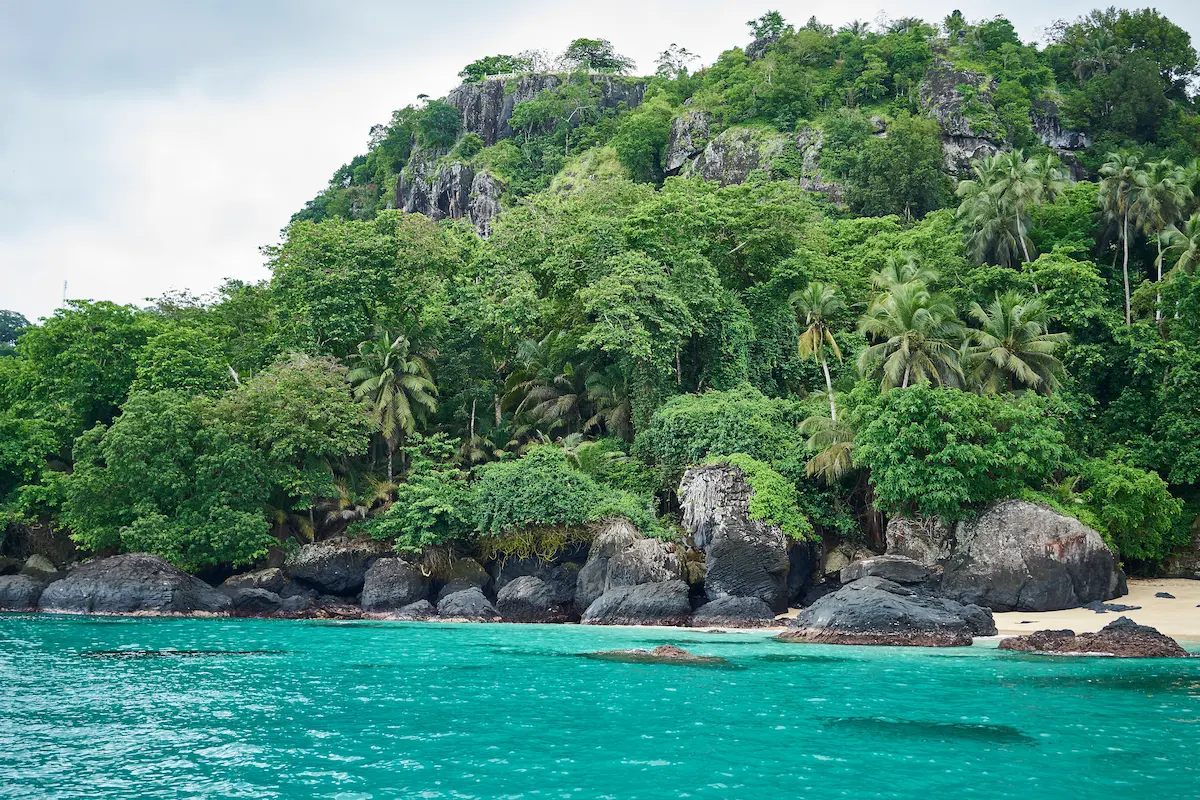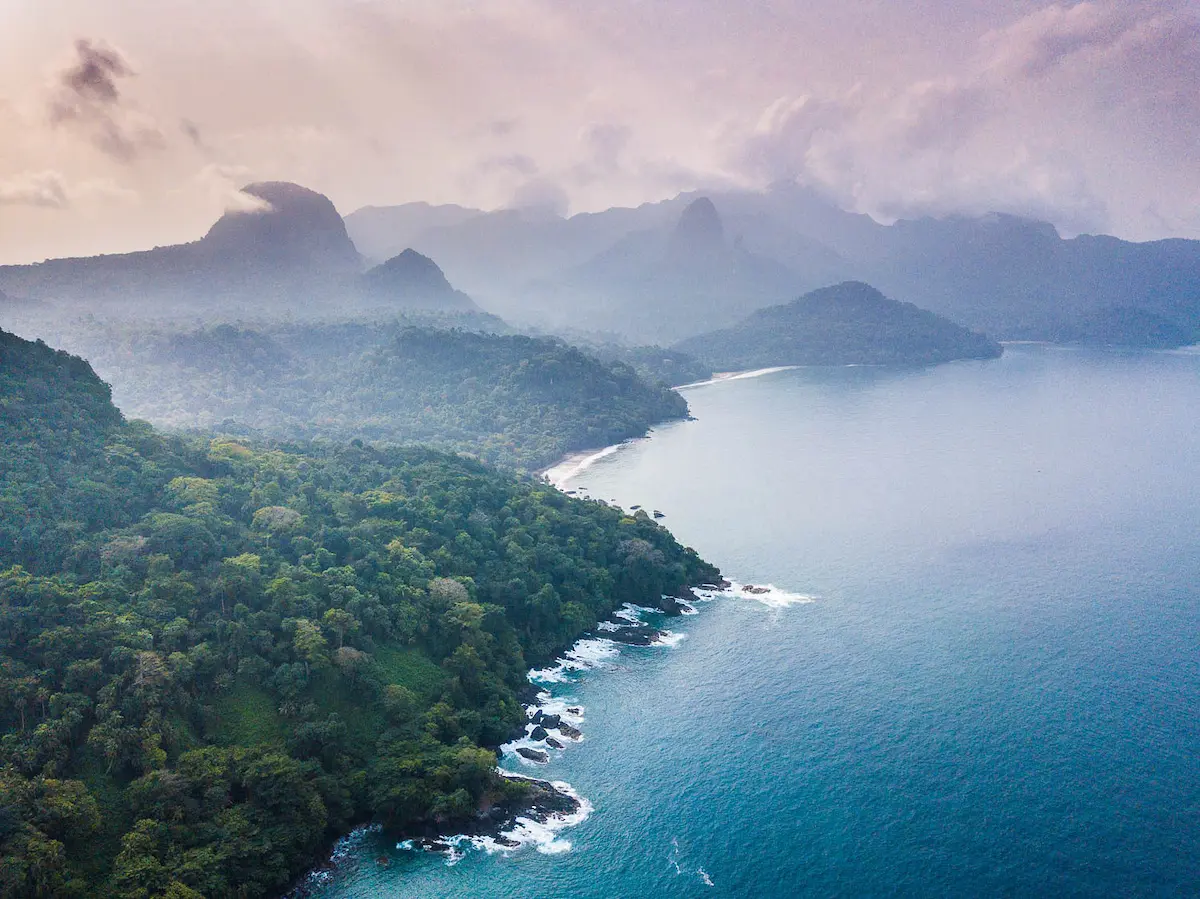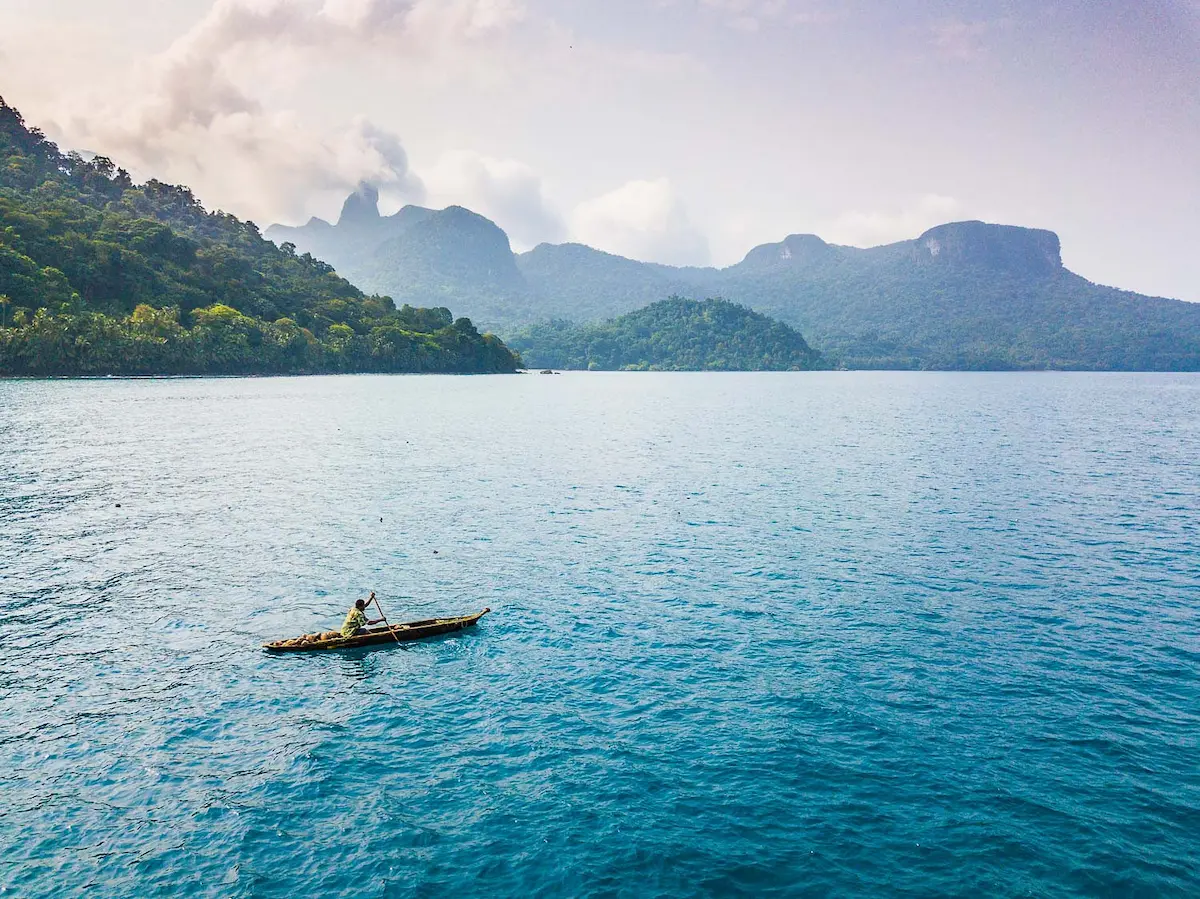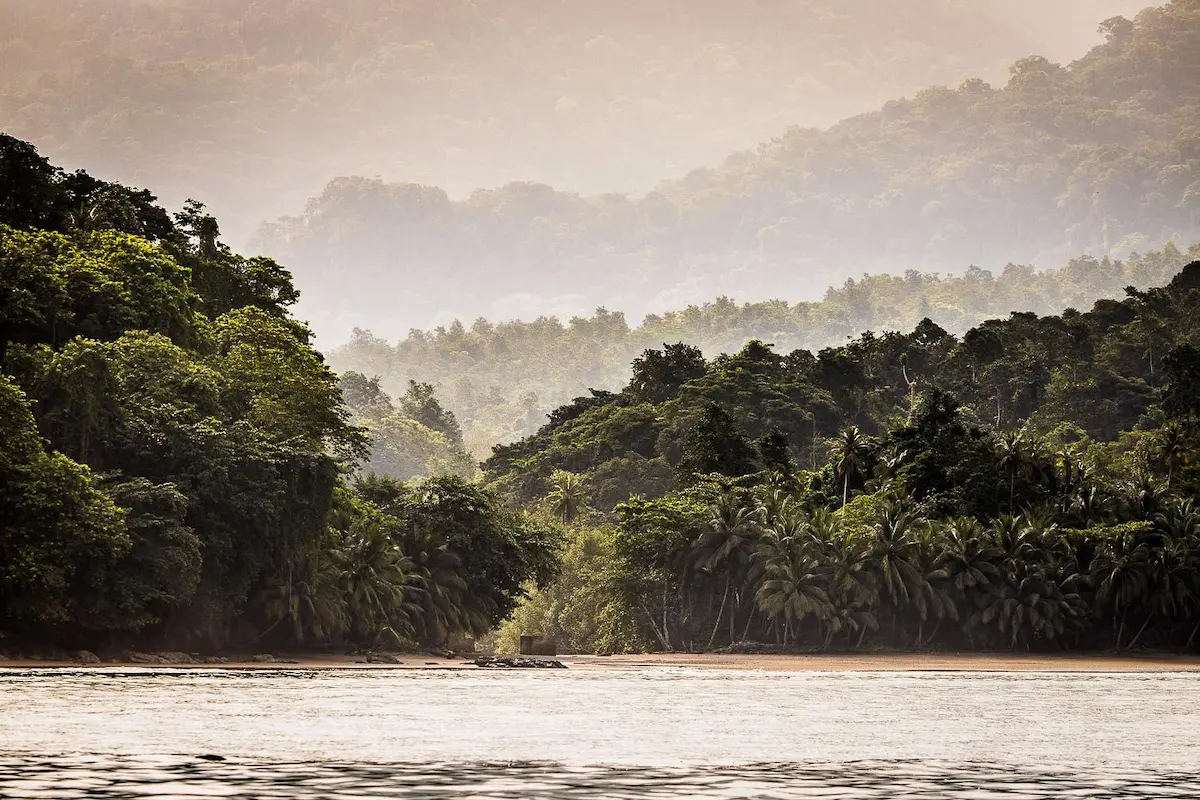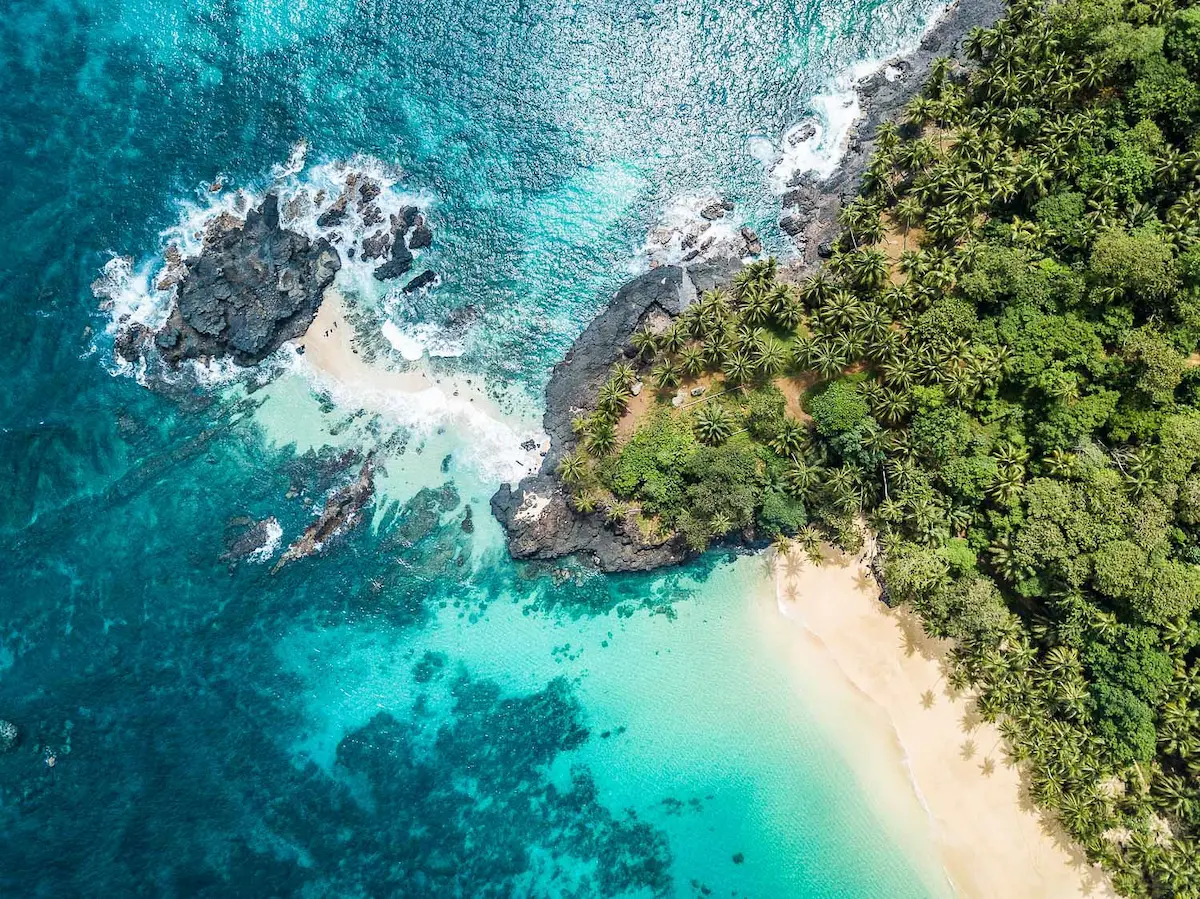São Tomé and Príncipe is an undisturbed spot in the middle of the Atlantic. On the two African islands, the ecotourism and agricultural company HBD Príncipe combines responsibility and tourism. Its flagship are four hotels. Above all, the idea is to support and protect the people and nature of Príncipe - and to be a global role model with this sustainable project.
Natural paradise off the West African coast
Six hours by plane from Lisbon, the islands of São Tomé and the much smaller sister island of Príncipe lie off the west coast of Africa in the Gulf of Guinea, around a thousand kilometres south of Cape Verde. Formed by volcanic activity and formerly known primarily for the export of coffee and cocoa, this tropical natural paradise is still relatively untouched by tourism. The Obô do Príncipe National Park covers more than half of Príncipe's surface area and is home to numerous animal species, some of which are endemic, making the island one of the most biodiverse places in Africa. Príncipe has been a UNESCO biosphere reserve since 2012.
The island owes this status in part to the ecotourism and agricultural company HBD Príncipe, which is committed to sustainable social and economic development on the island. The letters HBD stand for the expression ‘Here be dragon’, because in early cartographic representations, unknown parts of the world were symbolised with all kinds of creatures, especially dragons.
The approaches trialled on Príncipe are deliberately intended to serve as an inspiring example of global sustainable development.
The founder of HBD Príncipe, Marc Shuttleworth, writes:
Wouldn't it be fantastic if we could set a benchmark for what is possible in the balance between nature and people, culture and tourism?
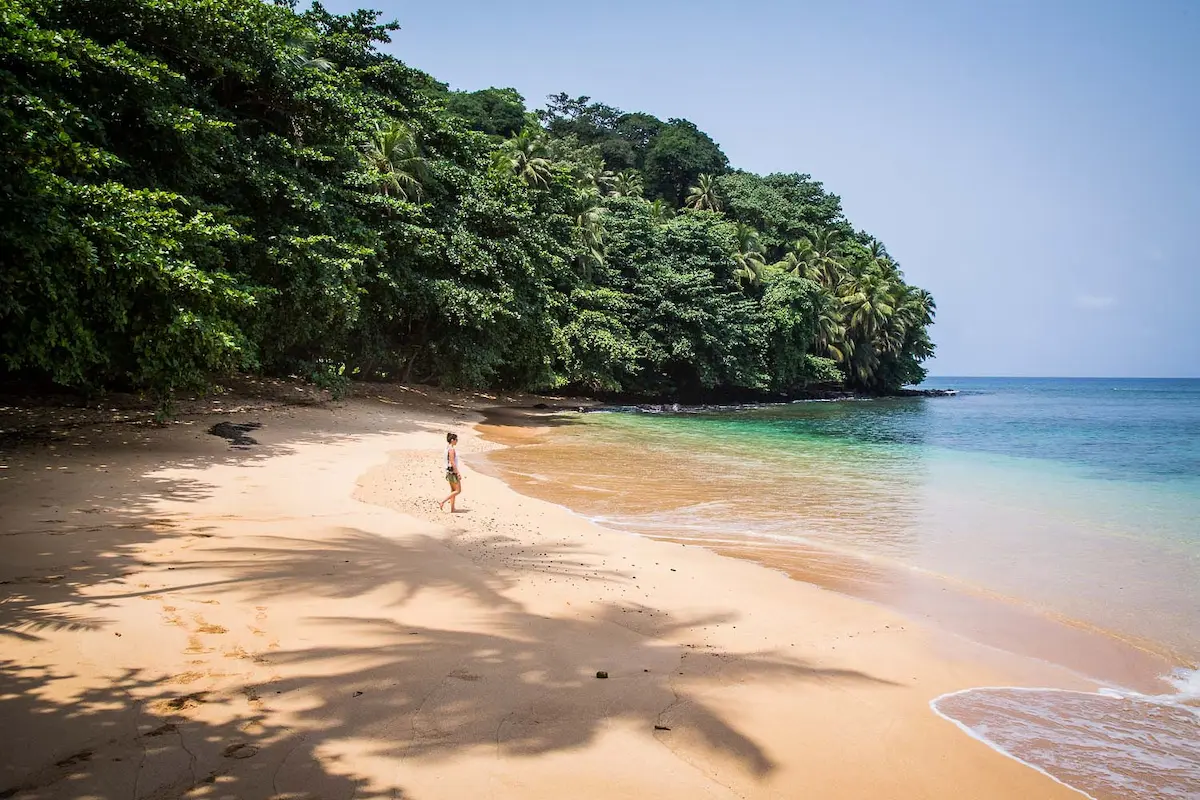
HBD Príncipe's commitment to nature and the population
To fulfil this exemplary role, HBD Príncipe is pursuing a sustainability strategy on several levels. As early as 2012, the company made a significant contribution to the preservation of biodiversity and UNESCO biosphere status on Príncipe. Today, Fundação Príncipe, formerly part of HBD Príncipe and now an NGO partner in the field of nature conservation, exists as an independent organisation that works with regional authorities and communities to protect the land and sea. In addition to the unique flora and fauna, it is above all the communities and culture of the island that HBD Príncipe wants to preserve with its commitment. Every guest aged 13 and over pays a €25 surcharge per night, 100% of which goes towards local initiatives. Through events and activities, the employees, most of whom were born on the island itself, are able to incorporate their local culture into the business processes. The distribution of the funds consists of three components:
- Fundação Príncipe (50 %): Fundação Príncipe, the local conservation NGO, carries out land and marine conservation projects across the island in collaboration with regional authorities and local communities.
- Educational support (25 %): Individuals, organisations and schools in Príncipe receive support for a wide range of educational activities.
- Environmental and social support (25 %): Individuals, organisations and communities in Príncipe receive support for environmental and social initiatives and events.
Maximum transparency is part of the HBD mission statement. Applications for educational, environmental and social support are assessed on the basis of objective criteria. An annual report is published by 31 March at the latest, detailing the amount of contributions received from guests for nature conservation and communities and how they have been used.
Flora and fauna
As São Tomé and Príncipe were never connected to the mainland, only a few mammal species live on the two tropical islands on the equator. In addition to various species of bats and flying foxes, these include the moname cat, which originally came from the West African mainland and settled here, and an endemic species, the São Tomé shrew. The sea off the coasts is all the richer in species, where various species of whales and dolphins can be observed.
Birds occur in numerous, often colourful species such as the yellow-breasted sunbird, the paradise flycatcher or the Angolan butterfly finch. Some are endemic, i.e. they only occur on the two islands. These include the Newton's shrike and the one-coloured bullfinch as well as the dwarf olive ibis, the smallest ibis species in the world. A total of 114 bird species have been recorded.
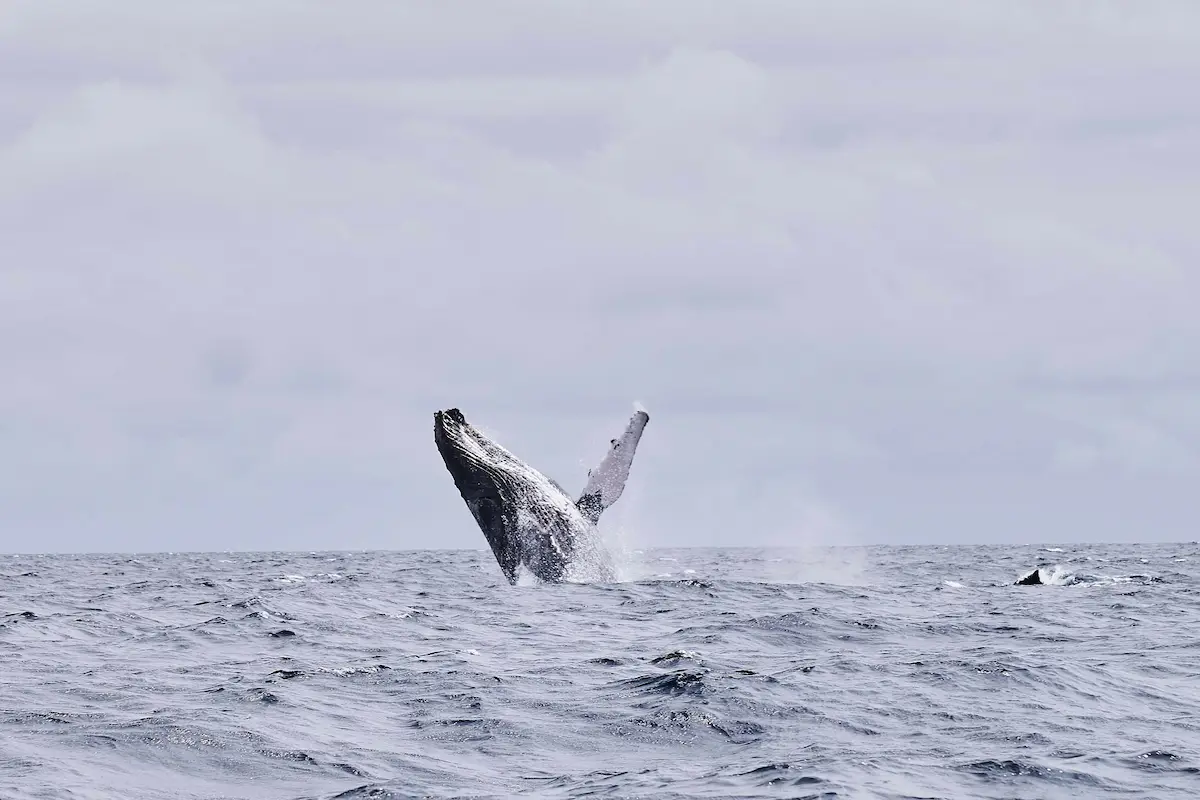
Guests get up close and personal with nature
HBD Príncipe now runs four hotels: Sundy Praia and Roça Sundy on the island of Príncipe and the sister hotel Omali Lodge on São Tomé. In addition, the beach resort Bom Bom on Príncipe has just reopened its doors to guests after extensive renovation and is ideal for discovering the island's unique flora and fauna both under and above water. The Omali (translated: ocean and source of life) on São Tomé is a good starting point for a trip. From here, the national museum, the southern beaches and the cocoa and coffee farms run by the community of São Tomé are within easy reach. Half an hour's flight away, the former cocoa plantation Roça Sundy on Príncipe welcomes guests with all manner of luxury and comfort. In the north-west of the island, the 15 tented villas of Sundy Praia stand on the border between the jungle and the sea, in perfect harmony with their surroundings.
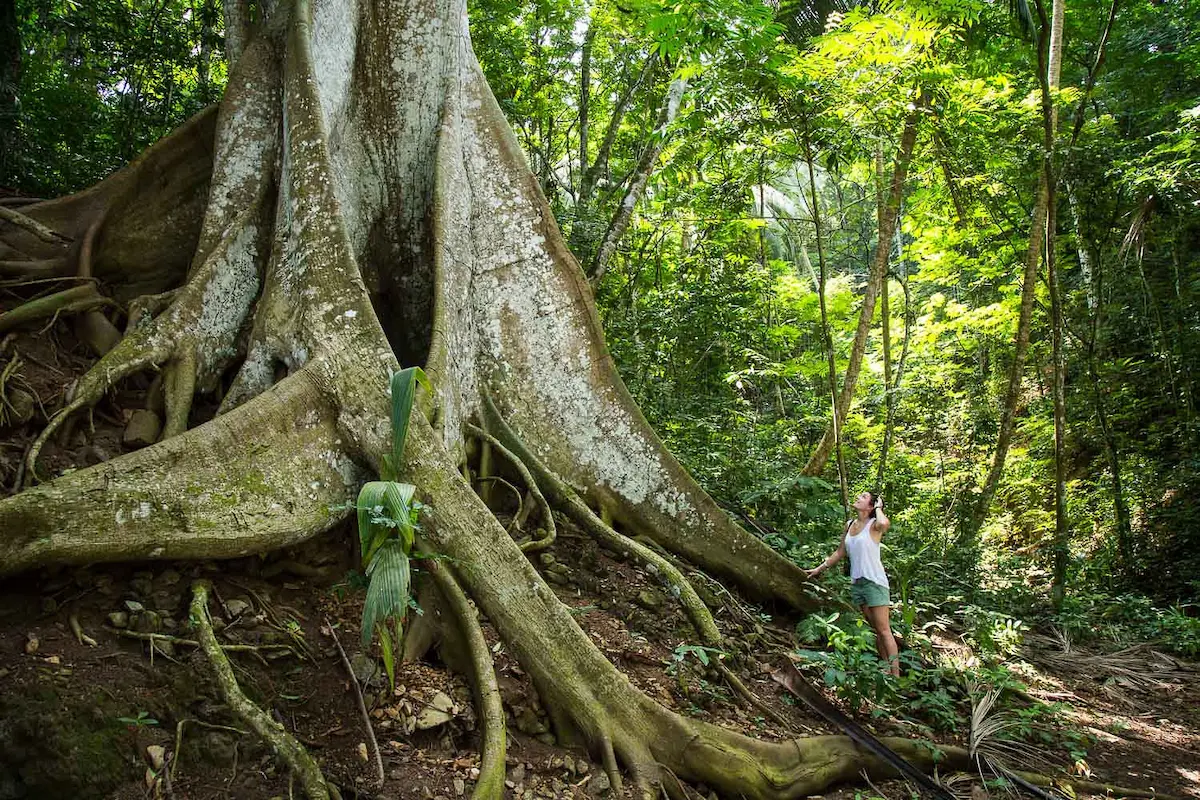
Further sustainability measures
In all its operations, HBD strives to minimise negative impacts on the environment and increase positive contributions through sustainability initiatives. For example, HBD Príncipe is a member of ‘The Long Run’, a membership organisation of nature-based tourism businesses that are committed to promoting sustainability and are also committed to conservation, community, culture and commerce (4Cs) in their operations. When building the houses, particular emphasis was placed on the careful use of resources and the use of local, natural materials.
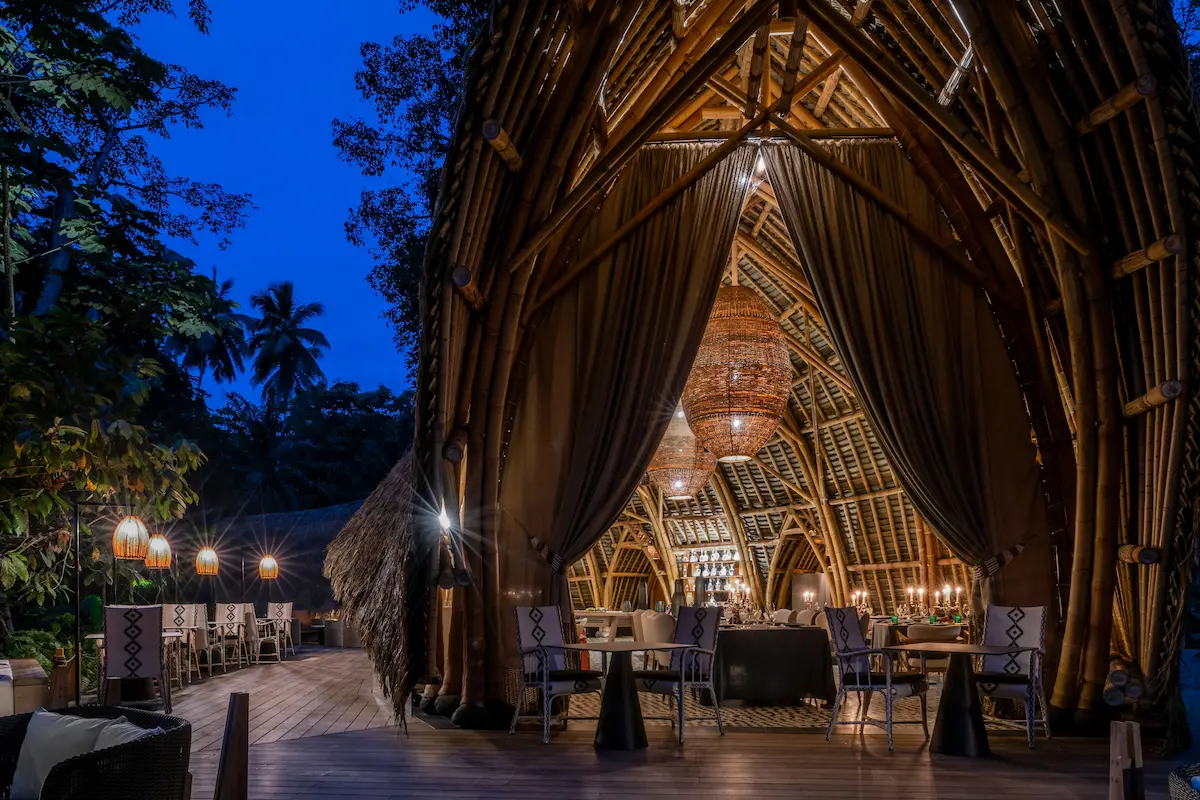
Sundy Praia's accommodation features special floors that are fitted with a ‘screw mechanism’ instead of concrete, which minimises the impact on the environment. The lamps in the in-house restaurant Oca Sundy have hand-woven hanging lampshades, made by an artisan on São Tomé. Most of the products used in the kitchen are also sourced locally. In addition, a selection of fruit, vegetables and herbs are grown organically and harvested by hand by HBD's horticultural team so that the chefs can use them for their daily meals. The tropical climate of Príncipe allows for horticultural harvesting throughout the year. In agroforestry plantations, special varieties of cocoa, vanilla, coffee, coconut and wild pepper are grown on nutrient-rich forest soils under the cool shade of the treetops and in harmony with the ecosystem. They provide the ingredients for Paciência Organic, HBD's local and organic product line.
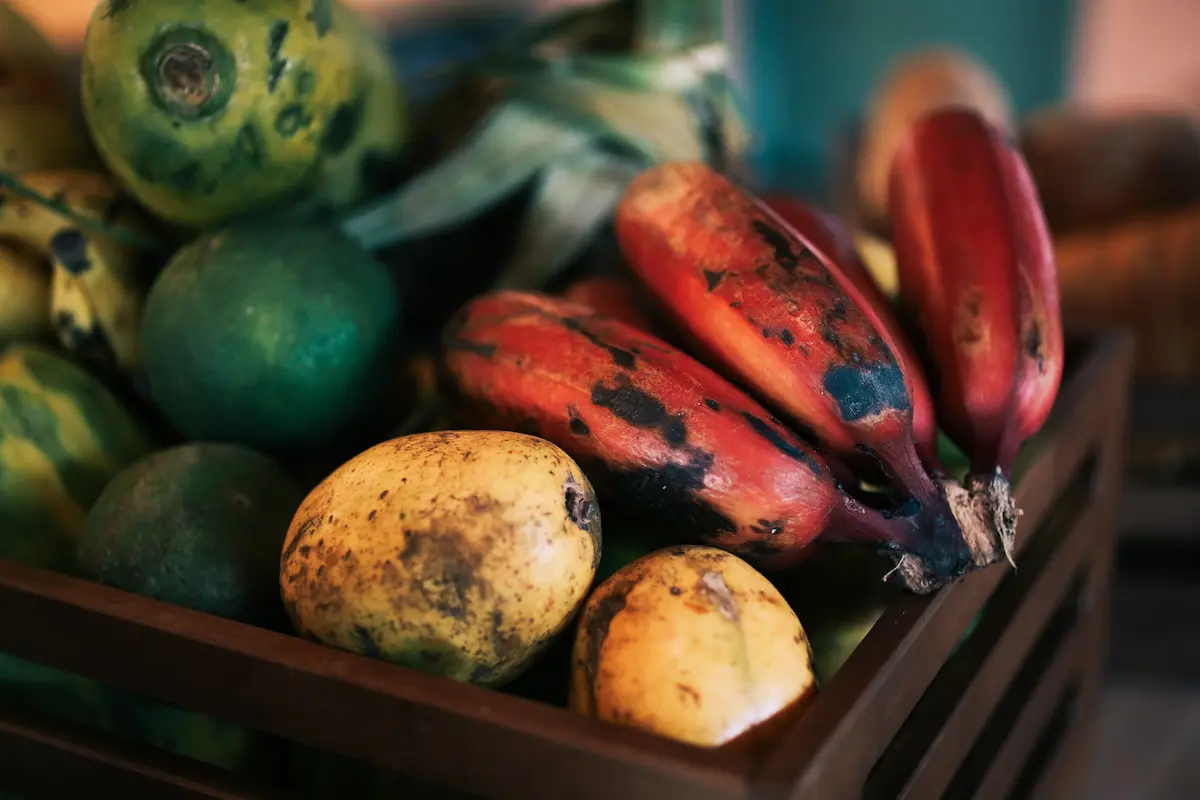
To minimise laundry and waste, bed linen is only changed every three days in all houses. Guests are encouraged to reuse their towels, shampoo and shower gel are available in refillable containers and waste can be recycled.
Sustainability at HBD Príncipe: www.hbdprincipe.com/sustainability/
Text: Peter Grett
Images:Lead image: HBD Príncipe
Pictures 1-5 Coast and beach: Scott Ramsay
Picture 6 Whale: HBD Príncipe
Picture 7 Tree: Scott Ramsay
Picture 8 Hotel: HBD Príncipe
Picture 9 Fruit: HBD Príncipe

